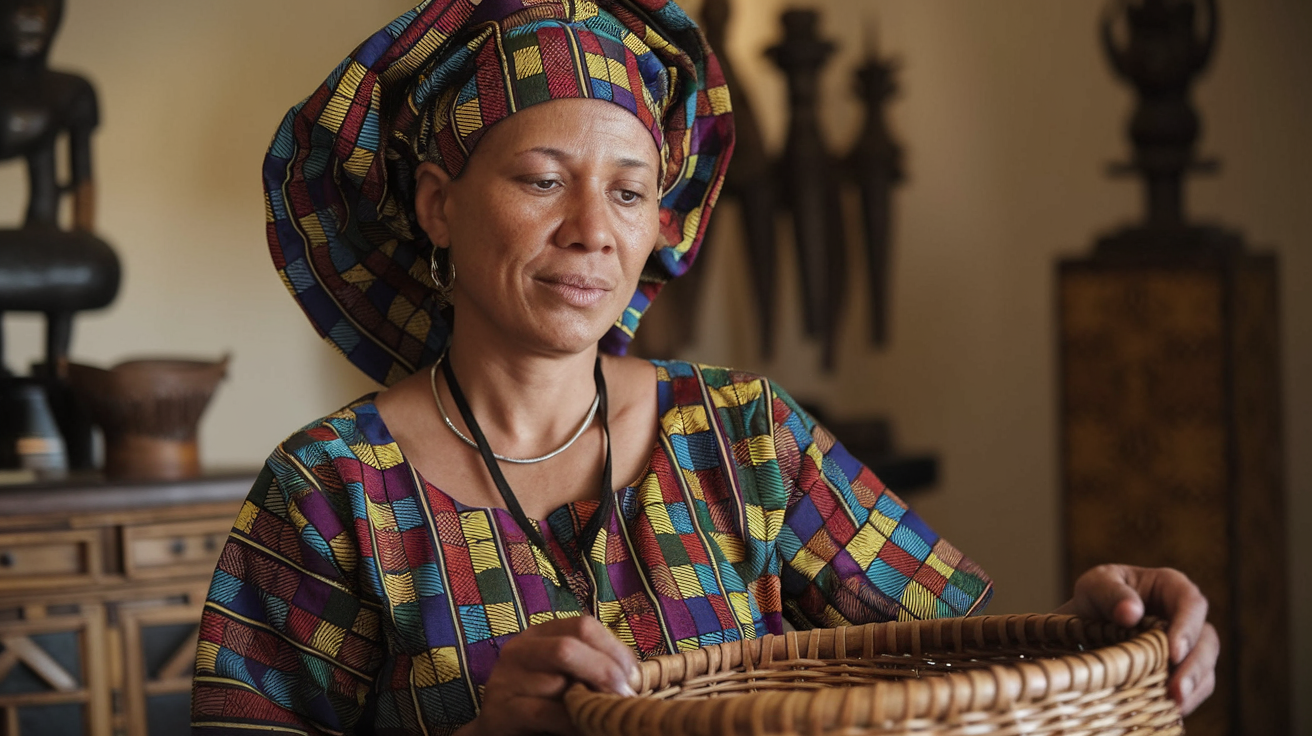In literary circles and discussions on cultural identity, the phrase what does Wangero Leewanika Kemanjo meaning is a recurring point of fascination. This name emerges prominently in Alice Walker’s celebrated short story Everyday Use, where it is adopted by Dee, one of the story’s central characters. The name signifies a layered representation of identity, history, and a redefined sense of self. Delving deeply into its implications, we uncover its cultural resonance, symbolic undertones, and broader commentary on African-American heritage.
The Origins of Wangero Leewanika Kemanjo
When considering what does Wangero Leewanika Kemanjo meaning, it’s essential first to recognize its literary roots. The name appears in Walker’s Everyday Use, a story that addresses complex themes of heritage and cultural reclamation. Dee, a young African-American woman who seeks to reconnect with her roots, renames herself Wangero Leewanika Kemanjo as part of her journey toward reclaiming a perceived lost African identity.
Each component of the name holds significance. “Wangero” has a Swahili origin, symbolizing a connection to East Africa, while “Leewanika” refers to a historical African king of Barotseland, emphasizing strength and leadership. “Kemanjo” adds cultural depth, although its exact etymology may vary. The name represents a break from Westernized labels and a move toward self-determined identity.
Cultural Identity and Renaming
The question of what does Wangero Leewanika Kemanjo meaning ties deeply into the broader context of cultural identity. For African Americans, names often carry historical baggage from the era of slavery, where individuals were stripped of their native identities and renamed by enslavers. Dee’s decision to rename herself reflects a desire to reclaim a sense of agency and connection to her African ancestry.
In the African diaspora, renaming is a profound act. It symbolizes resistance against oppression and a reclamation of one’s roots. Wangero Leewanika Kemanjo, in this sense, becomes not merely a name but a statement of defiance and rediscovery. However, the narrative also challenges whether this act of renaming, as demonstrated by Dee, genuinely honors heritage or merely reflects superficial understanding.
Conflict Between Tradition and Modernity
The exploration of what does Wangero Leewanika Kemanjo meaning cannot be separated from the underlying conflict in Everyday Use. Dee’s adoption of her new name contrasts sharply with that of her mother and sister, who maintain a strong connection to their immediate familial heritage. While Dee seeks to honor her African roots through the name, her rejection of family heirlooms, like quilts, suggests a disconnection from the lived experiences of her ancestors.
This tension highlights a critical question: does embracing a new identity require rejecting the old? In Dee’s case, her renaming as Wangero Leewanika Kemanjo is an attempt to redefine herself, but it inadvertently creates a divide between her and her family. This divide underscores the complex interplay of modern identity politics and traditional values.
Symbolism in the Name
The name Wangero Leewanika Kemanjo is rich with symbolism. When interpreting what does Wangero Leewanika Kemanjo meaning, it is essential to consider how each component reflects different aspects of identity. Wangero’s Swahili origins emphasize a connection to Africa, while Leewanika draws historical parallels to leadership and royalty.
In the context of Everyday Use, the name critiques performative cultural appreciation. Dee’s renaming might appear to embrace her roots, but her shallow understanding of her family’s lived heritage undermines its authenticity. This duality reflects a broader commentary on how individuals navigate identity in a post-colonial, multicultural world.
A Reflection of African-American Experiences
The question of what does Wangero Leewanika Kemanjo meaning serves as a lens through which we can examine the African-American experience. For many, the struggle to reconcile ancestral heritage with the realities of life in America involves navigating complex emotions and histories.
Dee’s name change highlights the yearning for connection to a pre-slavery identity. However, her actions in the story suggest that such reconnections are not always straightforward. Through Wangero Leewanika Kemanjo, Alice Walker explores how cultural symbols, like names, can simultaneously empower and alienate individuals.
The Literary and Cultural Impact
The significance of what does Wangero Leewanika Kemanjo meaning extends beyond the confines of Walker’s story. It has become a point of discussion in academic and cultural analyses, symbolizing the broader quest for identity in diasporic communities. The name represents a microcosm of the debates surrounding cultural reclamation, authenticity, and the impact of colonialism.
Moreover, the name’s layered meaning encourages readers to reflect on their identities and how names shape perceptions. For African Americans, it serves as a reminder of the historical erasure of names and the enduring struggle to reclaim a sense of self.
FAQ: Addressing Common Questions
1. What is the meaning of the name Wangero Leewanika Kemanjo in Regular Use?
The name symbolizes Dee’s attempt to reconnect with her African heritage. Each part of the name reflects African identity, leadership, and cultural pride.
2. Why does Dee change her name to Wangero Leewanika Kemanjo?
Dee changes her name to reject her given name, which she associates with the legacy of slavery, and to adopt a name that connects her to her African ancestry.
3. What does the name Wangero mean?
“Wangero” has Swahili origins and is commonly interpreted as symbolizing connection to East African culture.
4. Is the name Wangero Leewanika Kemanjo historically accurate?
While the name draws from absolute cultural and historical references, it is a fictional creation by Alice Walker, intended to symbolize a broader narrative about identity.
5. How does the name impact the story’s themes?
The name is a focal point for the story’s exploration of heritage, cultural identity, and the complexities of reclaiming one’s roots.
Conclusion
Exploring what does Wangero Leewanika Kemanjo meaning reveals a rich tapestry of cultural, historical, and personal significance. The name symbolizes identity reclamation, cultural pride, and the complexities of heritage in a diasporic context. Through the story of Dee and her renamed self, Alice Walker challenges readers to reflect on their connections to history and how names shape our understanding of who we are.
This literary exploration remains relevant today as discussions of identity, heritage, and cultural appropriation continue to shape our understanding of the past and our visions for the future. Wangero Leewanika Kemanjo, as a name and a symbol, stands as a powerful reminder of the enduring quest for self-discovery and authenticity.




